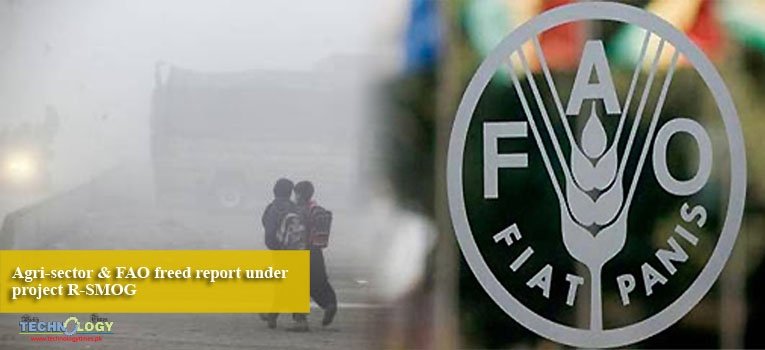Food and Agriculture Organization of the United Nations (FAO) under its project R-SMOG (Remote Sensing for Spatio-Temporal Mapping of Smog) released the report that intends to aid government institutions in the agri development of convenient policies to save from severe hazards in the future.

The research findings on R-SMOG were reviewed by the FAO global technical experts on information with a geographical component, methods and tools and validated by a wide array of Pakistani experts and institutions.
Agriculture Minister Malk Nauman Langrial said that report based on geospatial research will also contribute to findings on emissions and drivers of smog. The contribution of the agriculture sector to smog through the practice of crop scum burning is momentous.
Sectoral emission record of Punjab shows that the major portion of total air pollutant emissions comes from the transport sector which holds 43 percent share, followed by 25 percent from industrial sector and 20 percent from agriculture.
Satellite data of atmospheric pollutants are being extensively used globally in the decision-making and environmental management activities of public, private sector and non-profit organizations.
Malik Nauman, on occasion, said the regime under special directions of Punjab CM Usman Buzdar already took measures to mitigate effects of smog hazard.
Current regime policy was to afford hygienic environment to public and that’s why Prime Minister Imran Khan ongoing tree plantation campaign to make environment better.
The agriculture department till now had planted more than one million trees for environmental wellbeing.